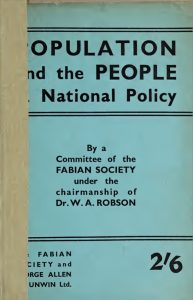For all the usual legal reasons, H&D has to be careful what we publish about last Monday’s horrific murders in Southport (just 20 miles from our office).
Since we cannot write specifically about Axel Rudakubana, the 17-year-old who has been charged with these crimes – and since individual crimes, however horrific, are not in any case a sound basis for political debate – let us instead look at broader issues.
Does it make sense for the UK to admit refugees from Rwanda, a country that was scarred during the 1990s by one of the most bestial civil wars in history?
Rwanda was never a British colony, so (for once) none of its ills can be laid at the door of the British Empire. For several decades it was part of the Kaiser’s German empire, and after Germany’s defeat in the First World War it fell under Belgian control until independence.
But for more than 60 years Rwanda has been independent: its troubles can be blamed on Rwandans themselves, no-one else.
There are very few Muslims in Rwanda: aside from tribal religions, the country is divided between Catholics and various Protestant denominations, with a large minority following Seventh Day Adventism.
Refugees from Rwanda would have to cross at least four other African countries before they reached Europe, so by no stretch of the imagination could the UK be deemed the first ‘safe country’ that they reached.
So why would Rwandans end up in the UK and is it reasonable for them to be granted leave to remain?
Note that many such cases appear to date from the 1990s, long before the recent ‘small boats’ crisis, and even before the justly reviled Tony Blair opened the immigration floodgates still further.
In other words, Rwandan immigration has nothing to do with the Nigel Farage and ‘Tommy Robinson’ agenda. These opportunists hate to talk about racial realities, but there comes a point where this is a duty.
Did it ever make sense for Britain to admit large scale African immigration, and did it ever make sense to call an African ‘English’?
Back in the 1940s, under the Labour government of Clement Attlee which is supposedly venerated by Keir Starmer and his ministers in 2024, it was assumed that Africanisation of our country was unthinkable.
The Fabian Society – a socialist think-tank closely tied to the Labour Party – reported in 1945 on what immigration policy would be best suited to rebuilding war-torn Britain:
“From the population point of view we need to encourage potential parents of healthy stock to settle in the British Isles, and to discourage those whom we already have from leaving.”
The Labour-Fabian approach was clear: the precise opposite of today’s great replacement. And we should note that the authors of this report were far from being ‘nazis’ – they were left-wing socialists. The chairman of the committee producing this report was an Anglo-Jewish academic, Dr William Robson, and his committee included the pioneer feminist Eva Hubback (who was related to the leading Anglo-Jewish families Spielmann, Montagu, and Sebag-Montefiore).
The Fabian report continued:
“Men and women of European stock, between the ages of 20 and 30, are the immigrants best suited to assist population policy. …The utmost care should, of course, be taken to admit only those physically and mentally sound, and free from criminal records, who will introduce a sound stock into the country. The eugenics of immigration cannot be over-stressed.”
A Royal Commission appointed by Attlee reported in 1949, along similar lines to these Fabian views:
“Immigrants on a large scale into a fully established society like ours could only be welcomed without reserve, if the immigrants were of good human stock and were not prevented by their religion or race from intermarrying with the local population and becoming merged with it.”
Note the apparent assumption that black immigrants would (in practice) not be appropriate for intermarriage with native Britons.
At what point was this common sense attitude abandoned by the British Labour Party? And were the British people ever consulted?
We shall examine these questions in part two of this article in a few days’ time.




